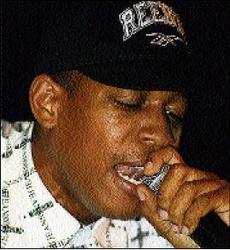


From left Beenie Man, Mavado and Tanto Metro
Howard Campbell, Gleaner Writer
The lengthening rap sheets of some Jamaican artistes may prevent them from touring countries including the United States and most of Europe.
Music industry analyst Clyde McKenzie, who helped fashion the careers of dancehall stars Beenie Man, Tanto Metro and Devonte, told a December 22 Editors' Forum at The Gleaner's North Street offices, that recent incidents involving dancehall acts in Europe and North America have hurt the genre's image.
Several Caribbean countries have also slammed their doors on Jamaican acts, including Vybz Kartel, Bounty Killa and Mavado.
Change in emphasis
"The business model for entertainment has changed dramatically and the emphasis is now on touring. That is the most lucrative segment on the value chain.
"But more and more doors are closing on our artistes, and that is a significant problem," McKenzie commented.
Dancehall acts have run afoul of the law in the United States, Canada and the United Kingdom in the past four years.
Protests by gay-rights groups against Beenie Man, Buju Banton and Sizzla resulted in the cancellation of some of their shows, but this has failed to satisfy the homosexual community, which wants a full ban on the artistes.
Banton's run-ins with gay groups in the US this summer, and his arrest on cocaine charges in Miami on December 10, have complicated matters.
"The doors are being closed as far as immigration is concerned, whether it is the perception about violence or homophobia. You find that some Caribbean territories are refusing to have artistes from Jamaica on their soil," McKenzie said.
With record sales taking a dive due to the growing digital market, touring has become invaluable for Jamaican performers.
Those prospects were dealt a big blow recently in the US, which remains the most lucrative live-show market for many dancehall and traditional reggae acts.
In November, the United States citizens and immigration services announced stringent requirements for visa approval.
The new policy calls for artistes to present the duration and itinerary in order to be granted an 'O' (for solo artiste) or 'P' (for group) visa to tour the US.
Previously, performers applied for a work visa which, if granted, would cover the artiste for as long as three years.
According to Billboard magazine, British rapper 'Speech Debelle' did not meet the requirements of the new regime and was refused a visa to perform in the US in November.
Stay clear of controversy
McKenzie is concerned that the Economic Partnership Agreement, signed by the European Union and Caribbean countries in April 2008, may have similar implications if dancehall artistes do not stay clear of controversy.
Under the agreement, Cariforum states will have duty-free and quota-free access to all goods exported to the EU market, except for sugar, rice and bananas.
It also opens 94 per cent of the EU's services (including leisure) sector to the Caribbean.
"The Europeans are finding a number of reasons and setting up a number of different structures to prevent our artistes from going there," McKenzie said.
"So the days when a guy (artiste) had some immigration issues but a promoter had money to spend (to get them in the country), those days are gone because they (promoters) now have to be licensed."